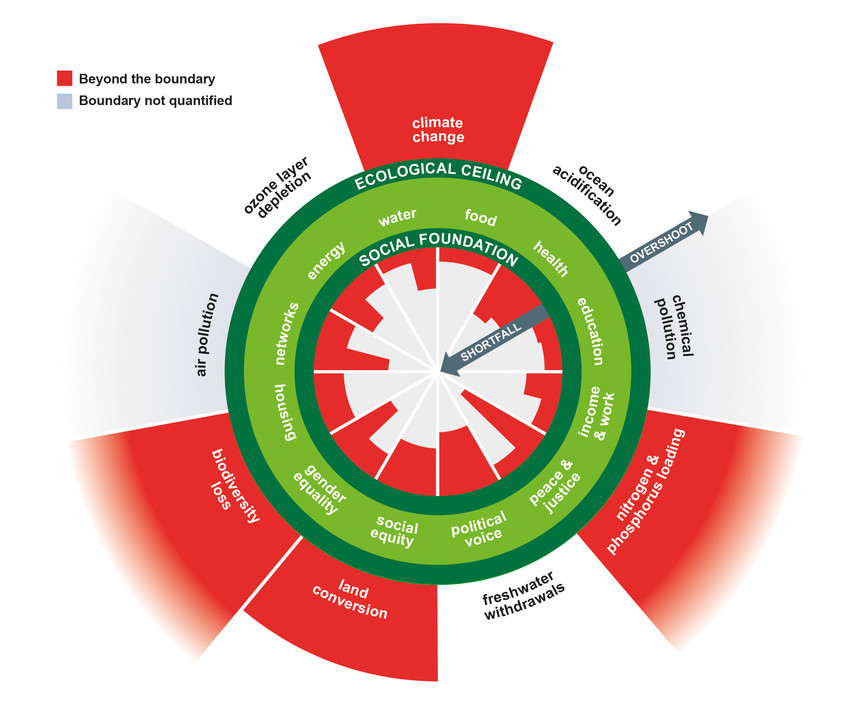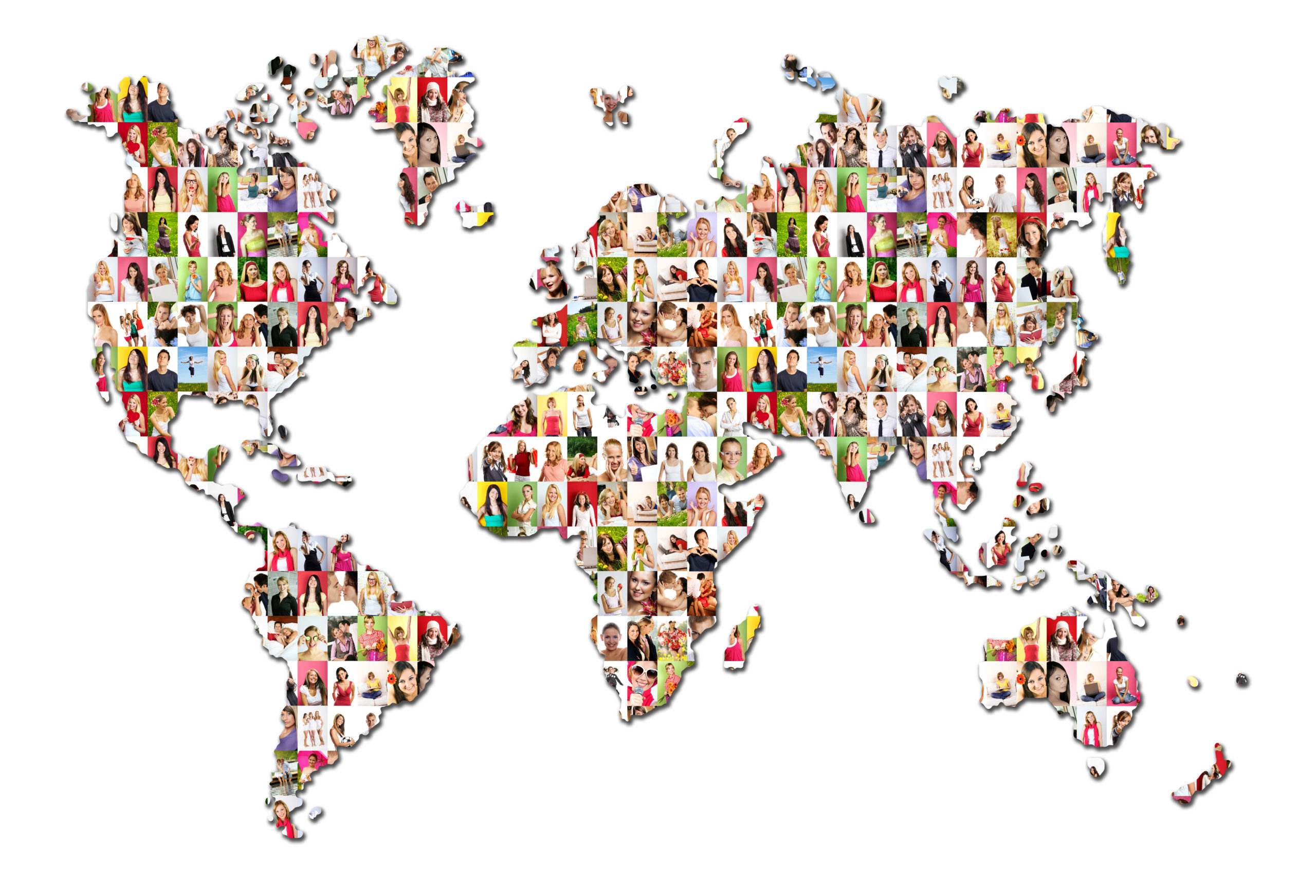From Destruction to Diversity to Destination Doughnut.
Today, Saturday 11th July, is World Population Day. It seeks to “focus attention on the urgency and importance if population issues.”
“The 2030 Agenda for Sustainable Development is the world’s blueprint for a better future for all in a healthy planet. On World Population Day, we recognise that this mission is closely interrelated with demographic trends including population growth, ageing, migration and urbanisation.” – UN Secretary-General Antonio Guterres. Source
Why is world population an issue requiring our attention? Think about it, there’s close to 8 billion of us already. Almost a quarter-million more people were added to our planet today and the same amount will be added tomorrow. The population ‘worldometer’ never stops counting but our planet is still the same size.
More than anything, this day is to “let the world’s people know the importance of managing resources.”
“Despite all the unknowns to be solved for the future, there are two key issues that we must address: how to manage the overpopulation and how to develop a social and structural framework to ensure coexistence in urban environments.” Source
The stress we put on our natural resources and environment is beyond explanation. While some countries and governments are better than others at putting measures in place for a more sustainable growth, one thing we all know is there is no time for turning back or pausing, even during the time of crisis. Those who haven’t started to address the issues associated with continuous population growth will have to start, and those who have started, will have to work harder at it.
Leaders, policymakers and place-makers – we need you!
We need to continue to create and protect places where all of us – our families, children, friends, neighbours and our natural environment and its habitat can co-exist; Where all the basic needs are addressed; And diversity is embraced and accommodated.
It is important to recognise that we have become much better at accepting and accommodating diversity on many fronts, with many countries around the world offering equal rights and opportunities to people of any race or gender.
But there is much more to accepting and accommodating diversity than just human diversity. To make diversity work, we need to incorporate it into our environments, both natural (think biodiversity) and built (think affordability, choice and innovative approaches).
For our natural environment, we’ve reached a point where we need to think beyond sustainability.
“Enhancing biodiversity is the next evolution in sustainable buildings and communities—and the industry needs to be prepared,” says Urban Design and Sustainability expert, and YIMBY Qld Co-founder, David Uhlmann.
“Our circular economy project models need to be reshaped to include a biodiversity benefit in the outcomes.” Source.
For our built environment, we need fair, sustainable and innovative approaches like never before. Ones that deliver choice, affordability and diversity, make the most efficient use of resources such as repurposing existing underutilised spaces and embracing diversity in housing choices, because a place to live is a basic need we need to meet for all. Ones that increase incidental activity and create walkability. Ones that are designed from inception for sustainability and the circular economy.
“Buy” the doughnut!
Enabling our communities to thrive without harming our one most important home – our planet, is possible. Places like Amsterdam as well as cities of Germany and US are exploring the ‘doughnut model’ of economics coined by Kate Raworth and explained in the World Economic Forum’s recent video.

The hole of the doughnut represents those who don’t have basic necessities, and the aim is to get everyone out of the hole onto the doughnut. “But beyond the doughnut lies the destruction of our planet including climate change, pollution and biodiversity loss – caused when humanity places too many demands on the natural word.” We would say that beyond the doughnut also lies the destruction of our social values, those of fairness and inclusion, our health and wellbeing, and our ability to grow and sustain diverse communities.
Things like providing more housing through sustainable methods and better waste management are on the agenda for the countries adopting the model as part of their recovery journey from the COVID-19 pandemic.
The risk is that the pandemic and the consequent fear of the unknown including the degree of the looming global recession, may slow down investments in green infrastructure, warn the experts. And this is at the time where we need it most! When there is no time to turn back or even to pause. Those who haven’t started such investments, need to start, and those who have, need to work harder at it.
The call to action is simple “shape the new normal rather than let it emerge.” And take on a leadership role in building “more equal and sustainable societies.”
It’s not about reaching a destination but about an ongoing journey, flexible enough to adapt to the ongoing changing needs (of society and environment).
Many believe that the current crisis presents us with an opportunity. That the world is trying to tell us something – perhaps that our old habits are destructive and action can no longer wait to happen.
As cities around the world are adapting streets to pedestrians and cyclists, as more people are reclaiming our public spaces, and as all generations are forced to embrace technology to stay connected and flexible in performing their day to day duties, it is time to ask ourselves can we afford to wait for another crisis to happen in order to take the next steps (to continue to adapt further)?
While the world desperately awaits the introduction of the anti-COVID vaccine, the population continues to grow by almost quarter of a million people each day. The ‘worldometer’ doesn’t stop counting.
Innovation, Sustainability and Community are at heart of YIMBY Qld values. We would like to mark this important day and call upon all members of our community for their support in embracing change, accommodating diversity and sustainable growth.



